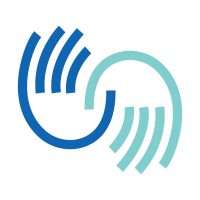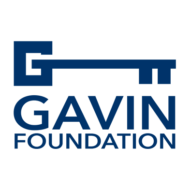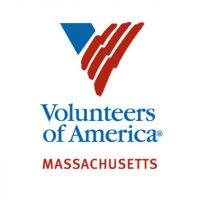Bay Cove Human Services - Bridge to Recovery Detoxification
Drug Rehab Center in Quincy, Massachusetts
The Bay Cove Human Services - Bridge to Recovery Detoxification in Quincy, Massachusetts provides drug addiction and mental health treatment through a range of residential and outpatient programs, including detox, addiction rehab, and therapy services.
Multiple patients have reported Bay Cove Human Services - Bridge to Recovery Detoxification as permanently closed.
Research other rehabs in Quincy, Massachusetts, or get help finding an open facility.
About Bay Cove Human Services - Bridge to Recovery Detoxification in Massachusetts
Bay Cove Human Services - Bridge to Recovery Detoxification provides compassionate and professional care to people struggling with drug addiction and other mental health issues. Located in Quincy, Massachusetts, this substance abuse treatment center offers a range of services that include drug rehab, detox, residential and outpatient programs. They specialize in treating alcoholism, dual diagnosis, opioid addiction, drug addiction, and substance abuse.
Bridge to Recovery Detoxification’s team of experienced clinicians provide a variety of effective therapies to support each client in their recovery. This includes couples therapy, family therapy, group therapy and individual therapy. Additionally, the facility offers a range of residential and intensive outpatient programs to cater to the individual needs of each person. The residential services include short-term stays (less than 30 days), long term stays (more than 30 days) and sober living/half-way services. These programs are designed to provide a safe and stable environment for individuals to recover in. Whether they are looking for short-term or long-term care, Bridge to Recovery Detoxification provides comprehensive care to help individuals achieve lasting sobriety.
Genders
Ages
Modality
Additional
Conditions and Issues Treated
Substance Abuse + Addiction Treatment at Bay Cove Human Services - Bridge to Recovery Detoxification
It’s not easy getting sober on one’s own, or even going to rehab and escaping the grasp of addiction by oneself. Substance abuse treatment gives addicts a place to stay sober while learning what it takes to quit for good. They will learn from others about what works and what doesn’t work with remaining drug-free.
Treatment centers such as Bay Cove Human Services - Bridge to Recovery Detoxification focus on the needs of individual addicts to heal them. There is a combination of physical and mental therapies that treat the root cause of the addiction, whether it be family problems, stress, or past traumatic events.
The final benefit of substance abuse treatment is introducing new people who can help in your recovery after you leave Bay Cove Human Services - Bridge to Recovery Detoxification. Through group therapy sessions with other addicts and attending support meetings once a day, a person will learn how to interact with others and cope with cravings. This is a chance for you to rebuild your social circle healthily after you leave treatment.
Opioid addiction starts when a person becomes addicted to legal or illegal opioids. The addiction can happen quickly, in just a matter of days. Opioid withdrawal can be extremely uncomfortable and lead the user to continue to use even if they want to quit. Stopping using an opioid requires medical observation. Sometimes inpatient treatment with a medically supervised detox is necessary for managing the withdrawal process while learning lasting tools for maintaining recovery. Medications may be used in some cases of opioid addiction.
Opioid addiction is one of Massachusetts‘s most prominent forms of addiction. It’s treated by detoxifying the body so that the chemicals from the medications no longer impact them and by therapies to correct behavior and target the root of the problem.
Levels of Care Offered
This center offers a variety of custom treatment tailored to individual recovery. Currently available are Detox, Drug Rehab, Outpatient, Residential, with additional therapies available as listed below.
Detox is the first step of rehab. It involves giving a person time to get the toxins out of their body. During detox, the patient gets ill and they will often start using again to get rid of these unpleasant feelings. That’s why it’s so important to have a Quincy medical professional at Bay Cove Human Services - Bridge to Recovery Detoxification present. A Massachusetts medical professional will make sure patients don’t start using during detox. They will also provide medication to ease their symptoms and coach them through on a mental level.
Outpatient treatment is considered the lower intensity level of addiction treatment. It’s ideal for early phase addiction or lower intensity addictions. It may include weekly sessions instead of daily. It may include weekly sessions instead of daily. Peer group support, 12-step programs, and individual counseling may still be involved but at a lesser frequency than an intensive outpatient program. It is a good choice for someone who doesn’t need to go through a medically supervised detox and who has a supportive home environment. It requires motivation and dedication to commit to the program without constant monitoring.
Residential treatment programs are those that offer housing and meals in addition to substance abuse treatment. Rehab facilities that offer residential treatment allow patients to focus solely on recovery, in an environment totally separate from their lives. Some rehab centers specialize in short-term residential treatment (a few days to a week or two), while others solely provide treatment on a long-term basis (several weeks to months). Some offer both, and tailor treatment to the patient’s individual requirements.
Therapies & Programs
Individual therapy involves one-on-one sessions between the patient and therapist. It provides patients with a safe environment to openly discuss personal and sensitive issues with the therapist. They find the therapist as someone they can trust. Individual therapy aims to identify the core issues that would have led the patient to substance abuse and address them effectively. The therapist can develop patient-specific customized solutions through individual therapy, which aids speedier recovery.
Couples therapy works with clients and significant others in a professional capacity to improve relationship dynamics. This can be helpful for addicts who are trying to marry the idea of recovery into their work, family, social lives – any aspect that has to do with relationships.
Through counseling sessions, addicts will have an opportunity to talk about their addiction with professional partners. These partners can offer feedback and advice on how to get sober while keeping healthy relationships intact. A good couples therapist will help addicts understand their part in an unhealthy relationship dynamic or find ways to deal with anger or resentment from significant others outside of the home.
Family therapy is a group problem-solving that aims to improve communication and relationships between the addict, their family, and sometimes friends. The main goal of family therapy for drug addiction is to create an environment where communication can occur without judgment, hostility, or blame. The therapist is with the family as they learn to communicate differently, especially with the addict when s/he is using. The family can learn to reduce their enabling behavior or rally together and support each other during tough times.
An addict’s family can play a vital part in helping them to avoid relapse because they can spot the warning signs and help them get back on track before it becomes too much of a problem. Family therapy is one of the most effective ways to help addicts stay on the path to long-term sobriety. When a drug addict decides that they want to try and get sober, it takes the support of every person they love to succeed. It can be incredibly difficult for loved ones to watch an addict go through the pain and suffering of withdrawal, but by being there with them and supporting them, they can help to make sure that the addiction never returns.
Groups typically involve meetings with other recovering addicts who can relate to one another’s experiences. They might meet in person or online and typically focus on the process of staying sober rather than overcoming a specific addiction.
In these groups managed by Bay Cove Human Services - Bridge to Recovery Detoxification, addicts can build a sense of community and develop strong emotional connections with others who understand what they are going through. These beneficial relationships can help addicts overcome their cravings and prevent relapse at any point during the recovery process.
Bay Cove Human Services Associated Centers
Discover treatment facilities under the same provider.
- Bay Cove Human Services - Substance Abuse Programs in Chelsea, MA
- Bay Cove Human Services - Center House Day Treatment in Boston, MA
- Bay Cove Human Services - Detoxification Center in Quincy, MA
Learn More About Bay Cove Human Services Centers
Additional Details
Specifics, location, and helpful extra information.
Quincy, Massachusetts 2169 Phone Number(617) 471-9600 Meta DetailsUpdated November 25, 2023
Staff Verified
Bay Cove Human Services - Bridge to Recovery Detoxification Patient Reviews
There are no reviews yet. Be the first one to write one.
Quincy, Massachusetts Addiction Information
Massachusetts has one of the highest rates of drug abuse in the country. More than half a million Massachusetts residents abuse alcohol while more than 1.5 million use illegal drugs each year. This drug and alcohol usage is the cause of over 8% of all deaths in the state. In 2017, Massachusetts ranked in the top 10 of the states with the highest opioid overdose rates.
More than 10% of Quincy, MA residents have used illicit drugs. Specifically, 20.4% of those aged 18 to 25 years old living in Quincy have used marijuana and cocaine at least once in their lifetime, while 4.2% have used heroin. The good news is that there are many drug treatment facilities in Quincy, MA, that can help people recover from addiction and abuse.
Treatment in Nearby Cities
- Great Barrington, MA (123.0 mi.)
- Abington, MA (15.0 mi.)
- Buzzards Bay, MA (43.6 mi.)
- Lorain, MA (80.7 mi.)
- Jamaica Plain, MA (7.7 mi.)
Centers near Bay Cove Human Services - Bridge to Recovery Detoxification
The facility name, logo and brand are the property and registered trademarks of Bay Cove Human Services - Bridge to Recovery Detoxification, and are being used for identification and informational purposes only. Use of these names, logos and brands shall not imply endorsement. RehabNow.org is not affiliated with or sponsored by Bay Cove Human Services - Bridge to Recovery Detoxification.




